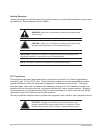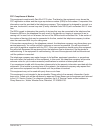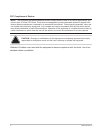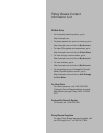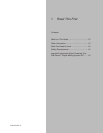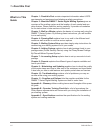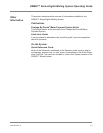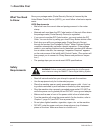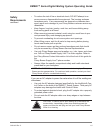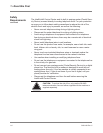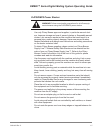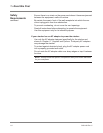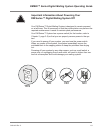
1-2 SV61162 Rev. C
1 • Read this First
Chapter 1 - Read this First contains important information about USPS
requirements and equipment and telephone safety precautions.
Chapter 2 - Meet the DM800™ Series Digital Mailing System gives an
overview of the mailing system and the location of each control and ma-
chine feature. Please read this section carefully. It provides a foundation
for the instructions in later sections of this book.
Chapter 3 - Mail in a Minute explains the basics of running mail using the
DM800™ Series System. By following these instructions, you will be able
to run mail quickly.
Chapter 4 - Running Mail explains how to run mail in the different mail
modes as well as when to use the various options.
Chapter 5 - Mailing System Setup provides step-by-step instructions for
customizing your mailing system to suit your needs.
Chapter 6 - Adding Postage
explains how to add postage funds to your
postage meter (Postal Security Device) using the Pitney Bowes Postage
By Phone® Meter Payment System.
Chapter 7 - Accounting Setup
explains how to set up accounts to track
postage.
Chapter 8 - Reports explains the different types of reports available and
how to print them.
Chapter 9 - Maintaining and Updating explains how to check the quality
of the meter stamp and how to take care of the moistener and tape feeder.
It also tells you how to add features and update postal rates and carriers.
Chapter 10 - Troubleshooting
contains a list of problems you may en-
counter while using your mailing system.
Chapter 11 - Supplies and Options
lists the supplies available for the
DM800™ Series Digitial Mailing System and how to order them.
Appendix A - Glossary
defines mailing terms used throughout this opera-
tor guide.
Appendix B - Operator Training Checklist
is a list of procedures the
Pitney Bowes representative will review with you during the installation of
your mailing system.
Appendix C - Specifications contains the specifications for the mailing
system and mailing materials.
What’s in This
Guide



